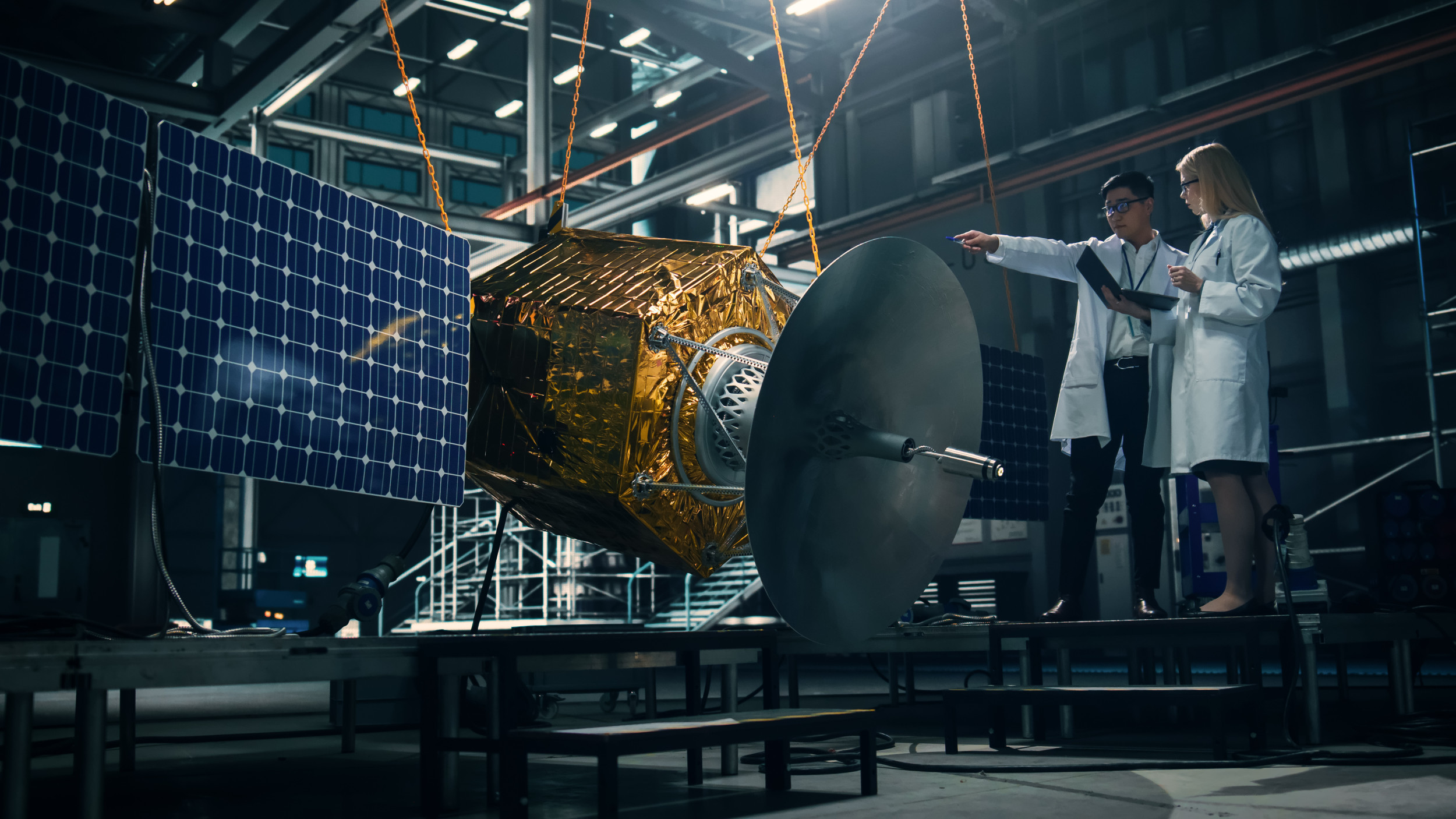
Do you look up at the night sky, marvel at rocket launches, find spacecraft endlessly fascinating, or simply seek greater frontiers to explore? If so, then space may be the right career for you. As we expand our collective efforts to explore space, the number and range of job opportunities — globally — is growing at a fast clip with increasing diversity across the space sector.
The space industry is almost as vast and promising as the celestial bodies and events upon which it is centered. Whether you're interested in studying planetary phenomena, constructing advanced observatories, conducting experiments in microgravity, looking for extraterrestrial life, or personally venturing into space on exploratory missions, the space field offers countless opportunities for you. Better yet, the space industry is growing, with sectors like aerospace engineering, astronomy-based physics, and operations technology all exhibiting above-average job outlook projections in the coming years.
You may wonder how to bring such ambitious goals to fruition. Luckily, thanks to the industry's range of employment pathways, a space-related job is more than tangible with the right preparations.
Reasons to Enter the Field
Motivation for entering the space field will hinge on your unique interests, skills, and professional aspirations. These ambitions should revolve around an overarching desire to innovate and push boundaries — these values are the lifeblood of a far-reaching, fruitful industry.
Broadly speaking, reasons to join the space field may include:
• Innovation and Advancement
The space industry is a hotbed of innovation, regularly producing and implementing cutting-edge technologies, which can be vital for understanding space, bolstering applicable research, and monitoring and safeguarding our planet. A career in space allows you to continually learn and apply new skills, foster personal growth, and revolutionize an already dynamic field.
• Collaboration, Diversity, and Inspiration
Space exploration increasingly involves worldwide cooperation, promoting diversity and public/private sector collaboration. Engaging with people from around the world can enhance your cultural awareness and communication skills. Given expanded access to all sectors of society also affords women, persons of color, LGBTQ+, and disabled individuals greater opportunities to play important roles. What's more, your work may inspire the next generation of scientists, engineers, and explorers.
• Economic Growth
The space industry is a significant driver of economic growth, offering job opportunities, promoting entrepreneurial ventures, and supporting integration and growth in related sectors like aerospace and satellite communication. Participation in the industry spurs its substantial infrastructural investments to stimulate local economies and create educational and training-based programs to prepare future workforces. Contrary to the old notion of 'spending money in space and not on Earth,' every paycheck to every person in the space sector is on Earth (with the exception of the few people who live in space, of course).
The Path to a Space Career
Obtaining a career in the space industry requires a strategic, personalized approach. You should start by establishing an educational foundation informed by your underlying interest in the field. Go with your passions. In most cases, this will manifest as a bachelor's degree in a related concentration like aerospace engineering, astrophysics, computer science, or biomedicine. Beyond this point, a master's or doctorate degree can augment your skills en route to more specialized roles in research and development.
Along the way, consider engaging in internships or co-op programs with space-related organizations. These opportunities provide practical experiences and professional connections that can prove invaluable later. As the space sector continues to expand, construction and operations degrees will be needed — both for launch facilities on Earth and for settlements on other worlds.
Networking is always important. Attending industry conferences, seminars, and workshops can help you connect with professionals and learn about industry developments. Grabbing speakers in the hallway after a presentation or at a reception is often a great way to get advice and possibly internships. Meanwhile, space-related clubs or organizations — both on and off-campus — can also broaden your professional network and boost your foundational experience.
As you approach graduation, start researching potential employers. Major players like NASA, SpaceX, Boeing, and Lockheed Martin are well-known but don't overlook smaller, innovative startups. In the past decade, the number of start-ups has blossomed. Center your resume and cover letter on relevant skills and experiences. From here, you should begin applying and interviewing for positions, which can be highly competitive. To increase your chances of employment, be sure to highlight your passions for space research, problem-solving abilities, and adaptability skills during interviews — and be prepared to demonstrate your technical knowledge and problem-solving skills. Practicing with friends and mentors is a good way to get ready for those interviews.
Even after you land a job, you should remain open to ongoing education and development opportunities. Always improving and expanding your skill set can help you stay updated on revolving trends and paradigm shifts in an ever-changing sector. Consider pursuing certifications, attending workshops, and seeking mentorship from seasoned professionals.
Above all, stay committed to your inherent goals and values in becoming a space professional. Don't take no for an answer — most astronauts have applied multiple times as have students seeking doctoral and post-doctoral positions. The disappointments may get you down but persistence can make you stronger.
While the process of obtaining space sector employment is far from simple or easy, the rewards greatly outweigh the challenges. Through perseverance and undying vision, you can give yourself the best chance of making a positive impact on this timelessly relevant field.
Unlike nearly every other job available, there is no limit to what we can explore in space! And there is a job waiting for you. You just need to decide to go find it.
Uncommon Knowledge
Newsweek is committed to challenging conventional wisdom and finding connections in the search for common ground.
Newsweek is committed to challenging conventional wisdom and finding connections in the search for common ground.





